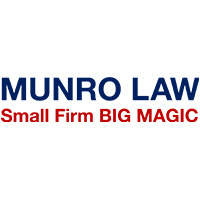Quicksburg White Collar Crime Lawyer, Virginia
Sponsored Law Firm
-
 x
x

Click For More Info:
-
Price Benowitz LLP
409 7Th St Nw Suite 200 Washington, DC 20004» view mapCriminal Law Working Relentlessly For You
Our firm was built on the understanding that comprehensive representation does not begin and end in the courtroom.
202-600-9400
Not enough matches for Quicksburg White Collar Crime lawyer.
Below are all Quicksburg Criminal lawyers.
Robert S. Hahn
✓ VERIFIEDCriminal, Divorce & Family Law, Business, Accident & Injury
ROBERT S. HAHN founded his legal practice in 2003 when he returned to the Shenandoah Valley, serving the needs of clients in criminal, family law, civ... (more)
Robert G. Munro
✓ VERIFIEDCriminal
Criminal & Family Law Specialist
Criminal Defense & Child Custody are complex cases and require strong effective representation. Munro Law Firm stands ready for you with free consults... (more)
Scott Timothy Hansen
Criminal, Traffic, Immigration, DUI-DWI
Status: In Good Standing Licensed: 24 Years
FREE CONSULTATION
CONTACTKathleen M. Mizzi Todd
Criminal, Traffic, Wills & Probate, Estate, Landlord-Tenant
Status: In Good Standing
Roger A. Ritchie
Mass Torts, White Collar Crime, Civil Rights, Personal Injury
Status: In Good Standing Licensed: 28 Years
 Seth Price Washington, DC
Seth Price Washington, DC AboutPrice Benowitz LLP
AboutPrice Benowitz LLP Practice AreasExpertise
Practice AreasExpertise


